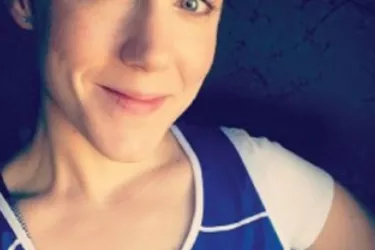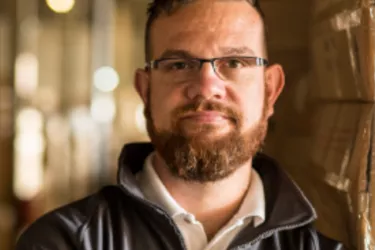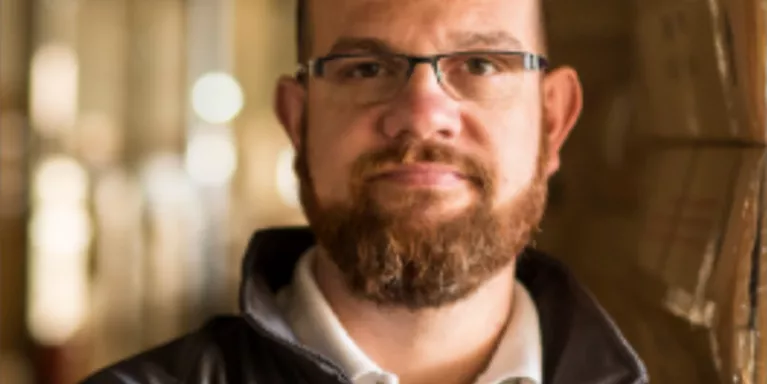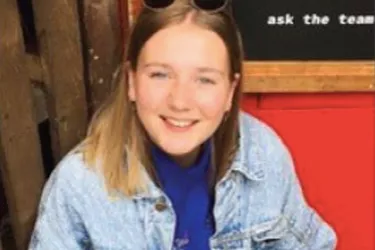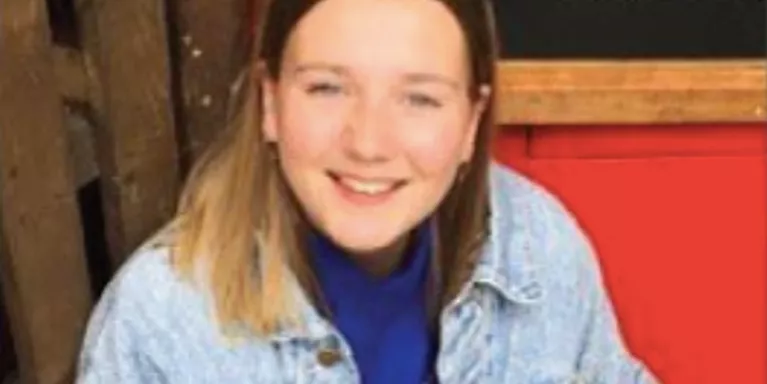Striker Boy: Keeping Jonny’s memory alive
Fiona writes about republishing her late husband's novel, Striker Boy, in his memory to raise money for Mind.
Fiona is a psychologist and professor. She is keen to start conversations on mental health and the struggles for those left behind after suicide.
Jonny was my soul mate for over 25 years. I feel blessed to have grown up with him. Our lives as a couple, and later as a family, were filled with laughter, music, and sunny memories with our community of family and friends. Even towards the end, when his flame was burning out, we managed to salvage deep moments of love and humour.
Most importantly, Jonny was simply the best dad ever. He cherished all three of our boys and instilled in them a love of life, a sense of humour, and a passion for stories and for football of course. Jonny’s magic touched everyone: his parents, his sister and brother in-law, niece and nephew and our wider family. He reached out to everyone he met in schools and libraries, in our community of friends, neighbours, and authors… even the guys in the local corner shop. Thankfully the boys and I will always hold big buckets of his magic inside us.
"Living with his illness was hard for all of us…I felt I just needed to carry on."
Jonny suffered with episodes of depression and anxiety throughout his adult life, especially when he worried about his writing work. But in the last two years of his life this all started to grow increasingly out of control. Jonny was diagnosed with Type 2 Diabetes and one of his books was rejected by a publisher. He took this badly and his vision of his world narrowed in on itself. Jonny became increasingly low and agitated and less present for us. Despite all the love and comfort that surrounded him, he was unreachable.
Living with his illness was hard for all of us. I was working full time as a clinical psychologist and then coming home and needing to keep it together and be strong for Jonny and our three boys. I felt I just needed to carry on. I felt exhausted and frustrated. Dinner times were the hardest.
We did talk to the boys about dad being ill; that he was feeling depressed and anxious and needed our support. The turning point was when we had to cancel our summer holiday because Jonny was too ill. In fact spending the summer at home together was really peaceful and the boys were fantastic, reassuring and kind to Jonny, despite being disappointed about missing a trip abroad.
"Looking back, I didn’t realise how bad things were for him. During his depression he became a very private person."
One day that year I came home from work to paramedics. Jonny had taken an excessive amount of his medication and my son had called the ambulance after dad was acting strange. Jonny said it was an accident and I believed him. I still don’t know to this day whether this was true. Looking back, I didn’t realise how bad things were for him. During his depression he became a very private person. He was seeing a therapist who he talked to, but he kept a lot of how bad he was feeling hidden from me. I didn’t realise the true extent of his distress, his risky behaviour and his suicidal thoughts. I understand the need for confidentiality of professionals, but I sometimes think that if I had been told how bad it was I may have acted differently. I wouldn’t have left Jonny on his own.
After Jonny took his own life we were left with the fall out. The shock, the grief and having to deal with the people around you not knowing what to say or do.
Thankfully we were surrounded by friends and family. We are Jewish and immediately after Jonny’s funeral we held a seven day Shivah. I truly believe the community were the life boat keeping me and the boys afloat during this time.
"Deciding to republish Striker Boy is giving our family some light in all the darkness."
Moving forward, the most important thing for me is to keep Jonny’s memory alive for our sons. We talk about Jonny all the time and I get upset sometimes but I want to make sure that they know death and bereavement are normal parts of life.
I also talk to them about their mental health - making sure they know that talking about their feelings and being upset is ok. I listen out for signs on how they’re doing during our late night chats or when we’re walking the dog.
Deciding to republish Jonny’s book Striker Boy is giving our family the positive energy we need to cope with his death. It’s giving us some light in all the darkness.
For months before his death Jonny and I carried around the precious leaflet of activities that were on offer at our local Mind. Sadly, the groups were often oversubscribed. We hope that by donating some of the profits to Mind we can help the charity be there for everyone who needs support for their mental health.


Information and support
When you’re living with a mental health problem, or supporting someone who is, having access to the right information - about a condition, treatment options, or practical issues - is vital. Visit our information pages to find out more.
Share your story with others
Blogs and stories can show that people with mental health problems are cared about, understood and listened to. We can use it to challenge the status quo and change attitudes.










